


Our 2022 Climate Cohort Fellows presented their policy projects at the Aspen Institute’s D.C. headquarters on Monday, December 5th, as part of the Aspen Climate Cohort Demo Day.
Washington, DC, December 5, 2022 – The Aspen Tech Policy Hub, in partnership with the Aspen Institute’s Energy & Environment program, hosted a Climate Cohort Demonstration Day in DC to celebrate our inaugural class of Climate Cohort Fellows. These incredible climate experts participated in our 10-week, full-time fellowship where they learned the policy process and developed policy projects. At the Demo Day, our Climate Cohort Fellows presented these projects, which include proposals for the federal government to use technology to expedite the disbursement of disaster relief funds; for state governments to set up loan funds that incentivize the adoption of carbon removal practices in farming; for city governments to encourage brownfield site remediation; and more.
The projects are:
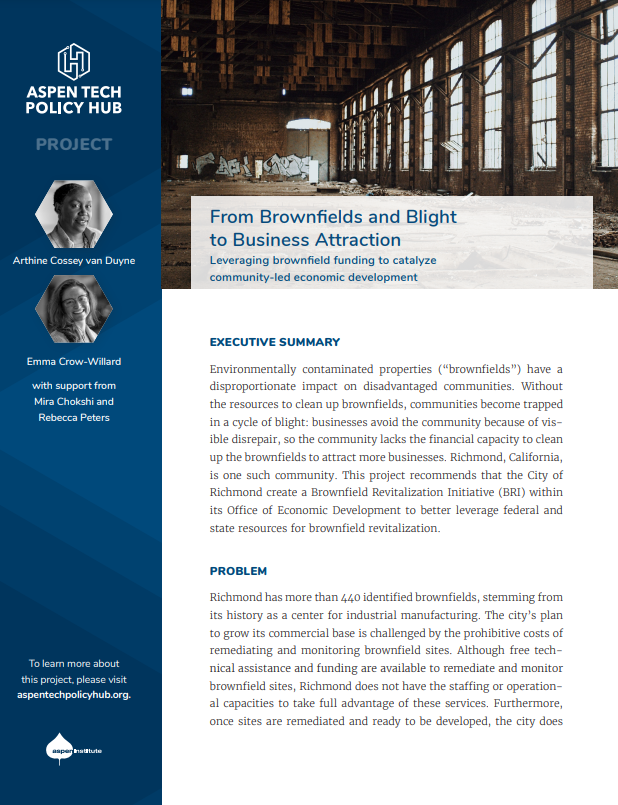
by Emma Crow-Willard and Arthine Cossey van Duyne
Environmentally contaminated properties, or “brownfields,” disproportionately impact disadvantaged communities. Without the resources to clean up brownfields, communities become trapped in a cycle of blight: businesses avoid the community due to visible disrepair, so the community lacks the financial capacity to clean up the brownfields to attract more businesses. This project recommends ways that cities can better leverage federal and state resources and partner with local organizations for brownfield revitalization, using the City of Richmond, California as a case study.
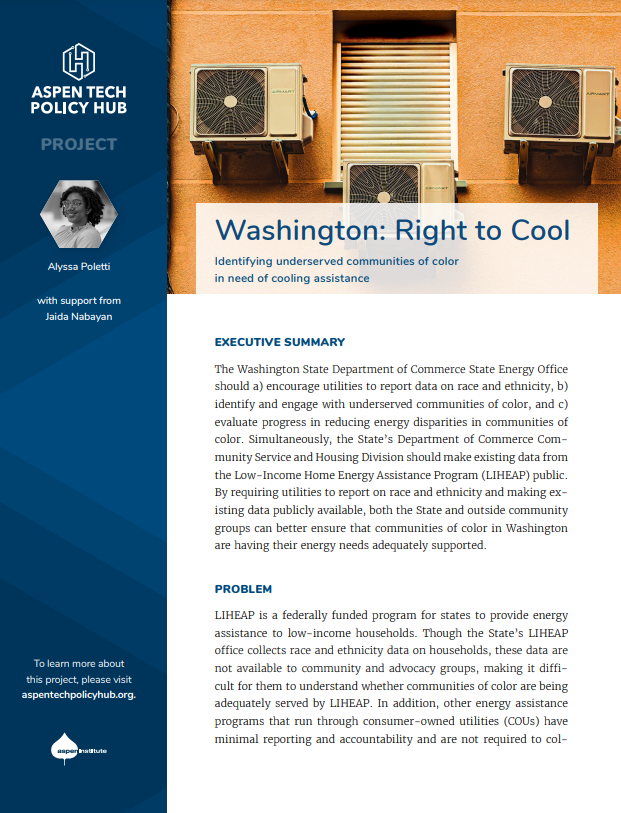
by Alyssa Poletti
The State of Washington’s Low-Income Home Energy Assistance Program (LIHEAP) is a federally funded program that helps provide energy assistance to low-income households. Though the State’s LIHEAP office collects race and ethnicity data on households, these data are not available to community and advocacy groups, making it difficult for them to understand whether communities of color are being adequately served by LIHEAP. This project proposes new data reporting and evaluation policies to help the State better ensure it is serving its vulnerable communities.
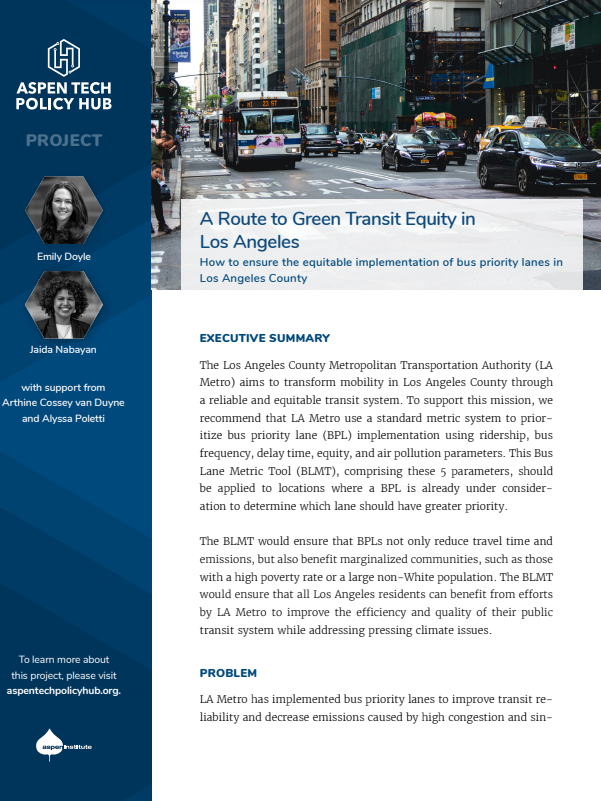
by Jaida Nabayan and Emily Doyle
The Los Angeles County Metropolitan Transportation Authority (LA Metro) aims to transform mobility and sustainability in Los Angeles County through a reliable and equitable transit system. To support this mission, this project recommends that LA Metro use a standard metric system to prioritize bus priority lane implementation using ridership, bus frequency, delay time, equity, and air pollution parameters.
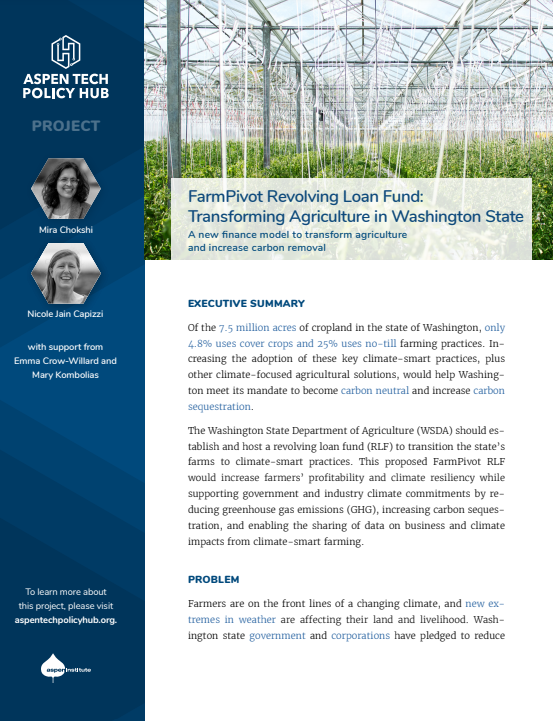
by Mira Chokshi and Nicole Capizzi
Of the 7.5 million acres of cropland in the state of Washington, only 4.8% uses cover crops and 25% uses no-till farming practices. At the same time, Washington state government and corporations have pledged to reduce 95% of GHG emissions by 2050, and agriculture needs to play a critical role in such reductions. To increase the adoption of key climate-smart practices, this project proposes that the State establish a revolving loan fund to help Washington state farmers transition to greener agricultural solutions.
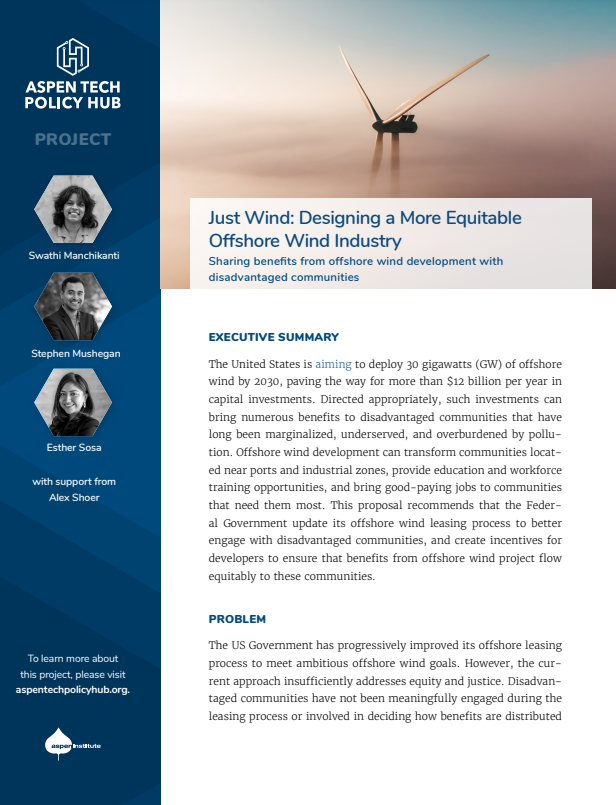
by Swathi Manchikanti, Stephen Mushegan, and Esther Sosa
The United States is aiming to install 30 gigawatts of offshore wind by 2030, paving the way for more than $12 billion per year in capital investments. Directed appropriately, such investments can bring numerous benefits to disadvantaged communities that have long been marginalized, underserved, and overburdened by pollution. This project recommends that the federal government update its offshore wind leasing process to better engage with disadvantaged communities and to incentivize benefits from offshore wind development to flow equitably to these communities.
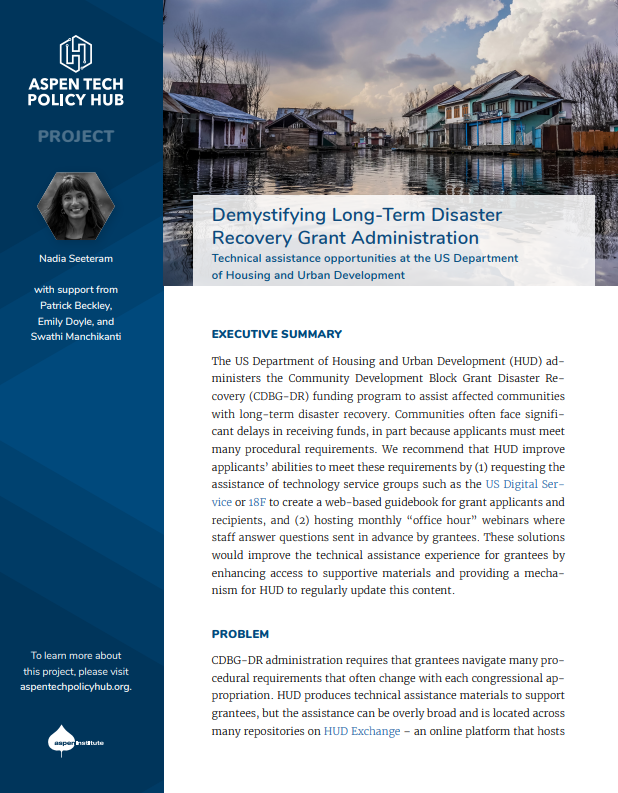
by Nadia Seeteram
Though the US Department of Housing and Urban Development (HUD) offers funding to assist affected communities with long-term disaster recovery, many communities have difficulty following the procedural requirements and are delayed aid as a result. This project recommends two ways that HUD can take advantage of existing government tools and resources to offer applicants more digital support and expedite the grant disbursement process.
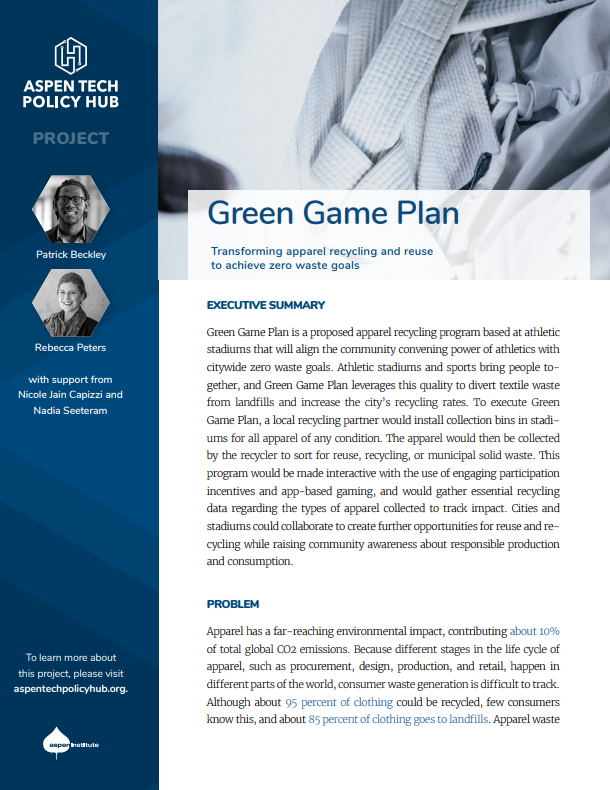
by Patrick Beckley and Rebecca Peters
Apparel has a far-reaching environmental impact, contributing about 10% of total global CO2 emissions. As places of convening and retail apparel, stadiums provide an ideal way to engage the broader public and encourage fans to participate in clothing recycling. This project proposes a comprehensive “Green Game Plan” initiative to help stadiums encourage recycling, engage fans, and partner with athletes to reduce climate impact.
To read the full press release, see: https://www.aspeninstitute.org/news/press-release/climate-cohort-2022/